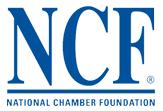 Michael Hendrix
Michael Hendrix
Director, Research & Emerging Issues
U.S. Chamber of Commerce Foundation
Tech hubs are blossoming in America’s big metros. Not just in Silicon Valley, but in New York City and Boston too. Richard Florida’s new “Startup City” report shows tech firms and venture capital “shifting back to the great urban centers.”
This growth is great. But what about the rest of America? Surely there must be innovation bubbling up there. And if it is, financial capital should follow.
It turns out that, yes, there’s a lot going on beyond the traditional tech hubs. Take the recent Google for Entrepreneurs Demo Day, for instance. Ten startups from seven cities across North America joined up to pitch investors, Shark Tank-style. Three additional investors — Steve Case of Revolution, Steph Palmeri of SoftTech VC, and MG Siegler of Google Ventures — then offered their advice. Check out the companies (and especially where they’re from):
Automated Insights (Durham, North Carolina)
Docalytics (Minneapolis, Minnesota)
GoSpotCheck (Denver, Colorado)
InvisionHeart (Nashville, TN)
iRule at Home (Detroit, Michigan)
Kidizen (Minneapolis, Minnesota)
MarkIT X (Chicago, Illinois)
Mojio (Vancouver, British Columbia)
WeDeliver (Chicago, Illinois)
Windsor Circle (Durham, North Carolina)
These aren’t the “hot” tech hubs we hear about. But they’re gaining ground by harnessing their strengths — low cost, close proximity, and high skills — in order to incubate a flock of startups.
Durham’s American Underground is one great example; it’s a co-working space that plays host to two of the Demo Day competitors. It’s cheap to work there — just $199 a month gets you a spot. It’s two locations are in up-and-coming areas that are relatively inexpensive, dense, and “hip.” One is in Durham’s historic district and the other is, appropriately enough, situated in the “creative district.” City density brings people and their ideas closer together, which helps enable innovation. Of course, this also happens to be a core selling point of a co-working space in general.
And the Durham area is chock full of bright, young college grads ready to fill the entrepreneurial ranks. Nearly 28% of the population has a bachelor’s degree or higher. And if you’re to believe Lumos Labs, the Raleigh-Durham area also has one of the nation’s highest general IQ scores.
Each of the Demo Day competitors was strong. So strong, in fact, that Steve Case made a spur-of-the-moment decision to back every competitor (not just the winner) with $100,000 of his own money. Case said that he was “inspired by the consistent quality of each of the pitches.” He was looking for “the rise of the rest”: new ventures emerging in areas underserved by venture capital funding. Google’s Demo Day was proof for Case that he was on the right track.
Durham’s own Windsor Circle ended up the day’s winner. The company helps online retailers know what to do with their Big Data. The result: better ways to keep customers loyal. The company, fresh off another win at South by Southwest’s pitching competition, is now in the midst of raising millions in fresh capital. Clearly, Windsor Circle tapped into a huge unmet need.
Delivering Innovation in the Rest of America
The company that really caught my interest though was Chicago-based WeDeliver. It’s like Uber, but for deliveries. And it’s demonstrating one way the “rise of the rest” of America’s entrepreneurs happens in practice. That is, by taking an idea that’s percolated elsewhere (often in an existing tech hub) and taking it to its next logical step. Then testing and growing the nascent company away from the hyper-competitive environment that the big tech hubs foster. After working out the kinks and establishing a strong home market, using newly-raised capital to get a jump on competitors in a host of new cities.
WeDeliver came about after its 31-year-old founder, Jimmy Odom, realized that he could make better use of his free time. He saw that time as “dead capital” that could be harnessed with technology and made more productive. Now your free time can mean signing on to WeDeliver’s service and making a couple of deliveries for local merchants. You get paid and go on with your day.
As Odom puts it, what AirBnB has done for the couch and Lyft for the car, WeDeliver is aiming to do for your free time. I would say that what’s actually unique here is that it’s no longer a person being shuttled about or given a place to rest with WeDeliver, but a product or good. That’s Odom’s essential insight, and it’s a natural progression from what Uber and others have done. It benefits from the trails they’ve blazed.
WeDeliver is still a very new company, but the recent announcement of Uber Rush, the car dispatch service’s roughly similar delivery tool, should give you an idea as to the threat it poses to the (now) more established operators. This is exactly what should happen too. Others will take up WeDeliver’s challenge. Since Uber Rush is focused on Manhattan though, WeDeliver can use its Chicago location to buy time and grow.
There are growth opportunities outside the major tech hubs and investors want to back them. Joel Kotkin has spent years hammering home a similar point: don’t just look at the major tech communities, but the fast-growing ones nipping at their heels. They’re creating jobs at a fast clip in places like Texas, Utah, and Florida. Financial capital is starting to rush into these areas in search of friendlier cost structures and business environments. Often they find local investors already there.
The upside of all of this is greater competition and a friendlier environment for startups in more corners of America.
– See more at: http://www.uschamberfoundation.org/blog/2014/04/does-your-city-do-its-startups#sthash.wUT3rYgf.dpuf
Disclaimer: Articles featured on Oregon Report are the creation, responsibility and opinion of the authoring individual or organization which is featured at the top of every article.

